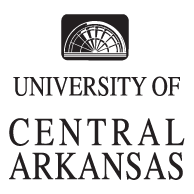Peter Rollins's Blog, page 48
October 13, 2011
The most Important Information We Seek Is What We Already Know
The traditional debate concerning secrecy and the State revolves around the question of what information should be available to the public and what information needs to remain hidden. This debate is particularly pertinent in light today in light of Wikileaks. Yet the philosopher Slavoj Zizek has drawn attention to the way that this debate can obsure the most powerful aspect of Wikileaks. Rather than the liberal claim that Wikileaks is important because of the way that it tells the public things it does not know he has pointed out that its true power lies in telling us things we already know, but refuse to acknowledge.
Of course Wikileaks tells us lots of things that most of us had no idea about (what certain diplomats thought of a particular leader etc.). However the information that has caused the most disruption has been of a different nature. It has related to such things as the employment of unlawful arrests, black hole prisons, torture, and the murder of innocents. All things that a large number of us already knew was happening. The difference was that, before Wikileaks (and similar sites of revelation), we were able to engage in plausible deniability. Not a plausible deniability that we could use when confronted with others, but a plausible deniability that we could use when confronted by ourselves. In other words, we were like many citizens of Nazi Germany who did not know what was happening to their Jewish neighbours. It was true that they did not have direct evidence, but there was a host of indirect signs that something very bad was happening. But as long as one is not confronted with the direct evidence one can refuse to know what one knows or, to put it in another way, refuse to acknowledge what we are aware of. Something that happens when we buy a diamond engagement ring or eat meat, or buy a cheap sweater. For most of the time we are dimly aware that the diamonds were likely extracted by people with no human rights, the animals were probably sorely mistreated and that there is a good chance the clothes came from sweatshops. What we do then is try to avoid a direct confrontation with the facts because, if they are presented to us, we are no longer able to pretend to ourselves that we do not know what we already know.
This same logic is what we see play out in our personal lives. Often the information that is truly devastating in a relationship, for instance, is not the information that you have no idea about, but rather the information you already know (through indirect signs) but have refused to acknowledge directly. Take the example of a married man who is having an affair and telling the other woman that he will leave his wife. Over time it might become obvious to the woman that this is not going to happen yet she continues to suppress the truth. Eventually however the anxiety produced by not being able to directly confront the reality becomes greater than the horror of being confronted by it. So she pushes the issue in some way so as to provoke the other to admit what they are not admitting to either themselves or the woman in question. Only then can real change happen (which might even lead to the man actually leaving his wife).
All this is a way of saying that often the debate between when something should be revealed and when it should be left concealed covers over the more interesting question of when the things we already know should remain concealed and when they should be revealed.
October 11, 2011
Introducing an Insurrection
October 10, 2011
Another Fine Mess You've Got Me Into
This is a talk I gave at RevolutionNYC exploring the themes of separation, desire and fulfillment… and why we are all Zombies
October 7, 2011
An Introduction to Insurrection…
"Pete takes you to the edge of a cliff where you can see how high you are and how far you would fall if you lost your footing. And just when most writers would kindly pull you back from edge, he pushes you off, and you find yourself without any solid footing, disoriented, and in a bit of a panic…until you realize that your fall is in fact, a form of flying. And it's thrilling."
–Rob Bell, author of Love Wins
"While others labor to save the Church as they know it, Peter Rollins takes an ax to the roots of the tree. Those who have enjoyed its shade will want to stop him, but his strokes are so clean and true that his motive soon becomes clear: this man trusts the way of death and resurrection so much that he has become fearless of religion. He is a dangerous theologian and I mean that as a compliment"
–Barbara Brown Taylor, author of Leaving Church
"Rollins writes and thinks like a new Bonhoeffer, crucifying the trappings of religion in order to lay bare a radical, religionless and insurrectional Christianity. A brilliant new voice—an activist, a storyteller and a theologian all in one—and not a moment too soon."
–John Caputo, author of What Would Jesus Deconstruct
"Excellent thinking and excellent writing! I hope this fine book receives the broad reading it deserves. It will change lives, and our understanding of what religion is all about!"
–Richard Rohr, Center for Action and Contemplation
"Peter Rollins is the Anti-Christ for all fake Christians."
–Creston Davis, Philosophy Professor, Rollins College
If you would like to purchase the book click here
October 6, 2011
UCA, Conway AR
University of Central Arkansas, Conway AR
Whitworth University, Spokane WA
Over two days I will be offer some talks and engaging in conversation with students, pastors and teachers on various issues related to my most recent work.
For more information click here
Revolution, New York NY
I will be speaking about some of the content of my new book. If you are in New York I hope you can join me.
For more information click here
October 4, 2011
The Anchor, Nashville TN
The Anchor will be hosting me for a series of talks over two days. Woven in to his seminars will be times for discussion, worship, and liturgical service.
The Anchor, Nashville
The Anchor will be hosting me for a series of talks over two days. Woven in to his seminars will be times for discussion, worship, and liturgical service.
Peter Rollins's Blog
- Peter Rollins's profile
- 314 followers







